Question- How long have you had the bird? -> 8 months
- What is the birds age, species and history (if any)? -> about 1.5 years, lovebird
- What is your birds diet consist of (including specific brands of pellet/seed)? Zupreem pellets with a scoop of sauflower mix, veggies (daily) and oatmeal/pasta/cheerios every other day
- How long has said problem/concern been happening? The female laid eggs last Thursday, and I noticed the male has been trying to sit on the eggs as well. Is this common? I recall having a male canary doing the same thing...
- If it's a behavioral issue, how have you been handling it? -> The female is on the eggs regardless and the male is always close by - this is mostly a concern as I am starting to wonder if they are both females.
AnswerJJ - I'm not sure if you send this to me by mistake - as I don't recall your situation, but I will try to help you best I can.
It's completely NORMAL for a male lovebird to stick close by a female who is sitting on eggs. In fact, females will only get up to poop and get an occasional snack/drink of water. Males will go and eat gobs of foods and will feed the female while sitting on the eggs as well as long after the babies hatch. He will even take part in feeding the babies himself. Males are very involved in the chick rearing process and will often stay in or near the nest with mom throughout.
Some characteristics of male/female lovebirds can sometimes help you determine which is which... male/female. In the actual act of mating - if you witnessed it... the female lowers herself, presents her vent (the place she eliminates from) in the air and the male will climb on her back and rub his vent on hers. There's really no mistaking what's going on. ;-)
Females, when in a cage with another bird, and ESPECIALLY when nesting, sitting on eggs or with chicks in the nest... will be EXTREMELY protective of the cage, her mate and her nest. She will dart across the cage at your hand and given the opportunity will draw blood! Males are a little more stand offish and will usually back away into a corner when the hand approaches the cage. AS I mentioned earlier - you will see the male feed the female as well. He'll regurgitate (head bobs up and down) and then pass the food into the female's beak. If the one you suspect is the male is the one doing most of the eating - that's another sign too. Males tend to stand with their feet closer together, while females have a broader stance. Males will also make clicking noises just before mating. Females will tuck nesting materials into their backs and rump feathers. Some males will do this too but likely in their wings.
Another way to find out is to "candle" the eggs after 7 - 10 days after they were laid to see if they are fertile. But be careful!!! The eggs are very delicate and mom will fiercely protect them. Block off the entrance of the nestbox so you don't have to watch your fingers while removing them. Wash your hands thoroughly before handling them as well and do not keep them away from the mom for more than 5 minutes. They need to remain at a certain temp. or they will die if fertile. You can hold the egg up carefully over the light of a bright flash light (do this in a darker area of the house). If you see an air sac on one end, then a darker area covering most with red veins - you've got yourself a baby. Get those eggs carefully back into the nest for mom to sit on them.
I went through this whole process myself and currently have 2 healthy baby lovies who are three months old today!
Good luck and I hope this info has helped you. Please let me know if you have any other questions.

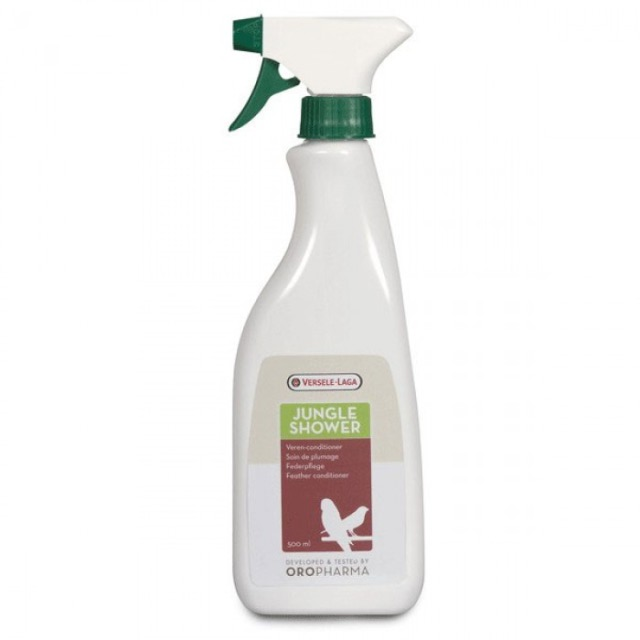 Indian Ringneck Health Issue
QuestionI have an Indian Ringneck who had been neglecte
Indian Ringneck Health Issue
QuestionI have an Indian Ringneck who had been neglecte
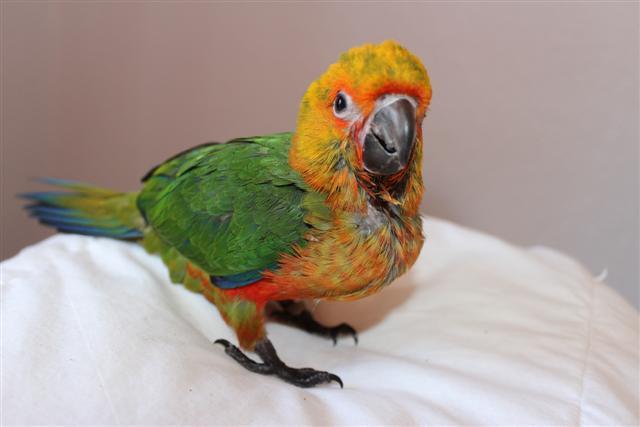 Jenday Conure Weaning?
Question
Castor the Conure
Hi
I have a 9 week o
Jenday Conure Weaning?
Question
Castor the Conure
Hi
I have a 9 week o
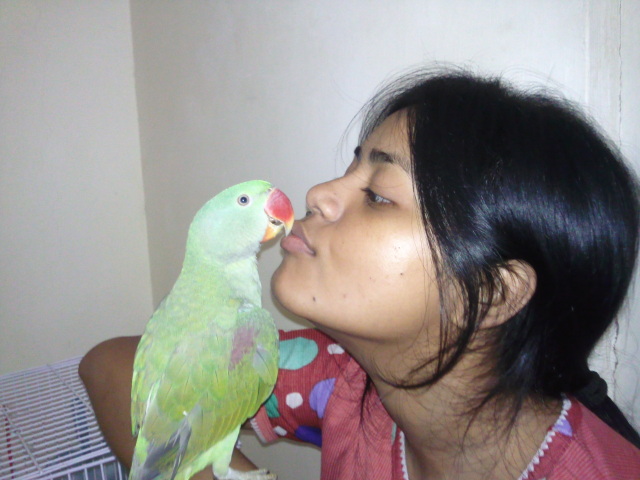 can i give my parrot chole(chana) called in hindi
Question
my little chaddi alexa
dear sir,
can give chan
can i give my parrot chole(chana) called in hindi
Question
my little chaddi alexa
dear sir,
can give chan
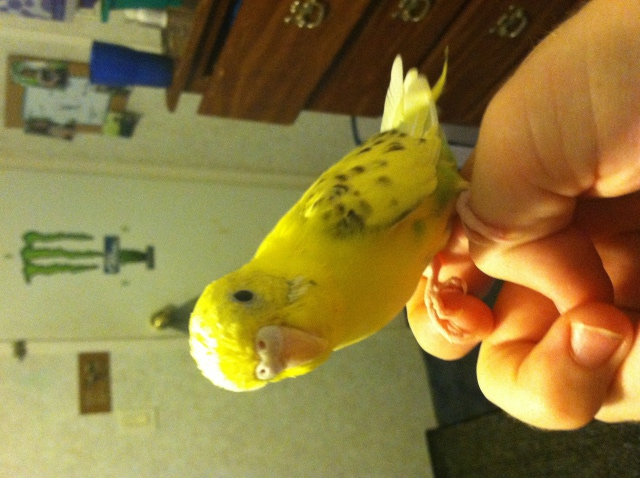 Parakeet gender
Question
Parakeet
Hi, I looked for an expert und
Parakeet gender
Question
Parakeet
Hi, I looked for an expert und
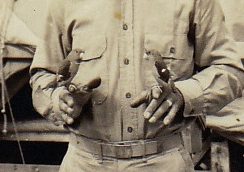 ID Birds
Question
Panama Birds
My uncle served in Panama in 1941
ID Birds
Question
Panama Birds
My uncle served in Panama in 1941